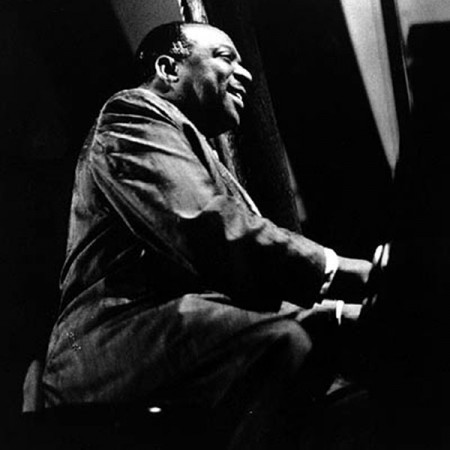
Count Basie (1904–1984)
(Photo: DownBeat Archives)Teagarden: Suppose a person comes up to you and tells you, “You know, I proposed to my girl, who’s my wife now—we’ve been happy for 30 years—at a dance you were playing and you played a certain waltz. Would you play that for us again?” I never ignore requests like that. Play a waltz, play a rhumba, or anything that a person would ask for. And I think, you make more friends that way and will make dancing be a pleasure again.
DownBeat: Stan Kenton has said that the future of the large jazz bands as opposed to dance bands lies in the colleges. Maynard, you were touching on this when you were talking about North Texas State and the high-school bands. Kenton holds that the colleges will be the places where musical progress will be made because there’s no economic pressures. They don’t have to worry about where they’re going to be working tomorrow and how to keep the band together. Is this valid or will the greatest things still be done by the working bands?
Ferguson: I believe the greatest things will be done by the working bands. You’re going to get those little young geniuses out of college ... I don’t mean that. I just can’t tell you how impressed I was with the North Texas State band-lab setups—I mean all the bands. I heard five bands in a row, and they were all about 18 men, 22 men, whatever size they wanted. Here’s an example of the teaching that went on there:
Johnny Richards had done an album for Kenton, Adventures In Time. They played the arrangements from that whole album, and they played almost flawlessly. Sure, there were little weaknesses here and there, and it is true that they had had the whole semester to work on this music, but it was just astounding to me how great it sounded. The way these kids would fight over who was going to play with what band!
All this interest is going to spread.
We do have a problem in the big-band field today: Everybody wants to blow and everybody wants to be a soloist. The day of the fifth trumpet player is gone, in terms of a guy being happy to do it. He may be happy to do it while he is developing. But supposing I, as a bandleader, want a great fifth trumpet player. I want a guy who’s really going to play those parts and isn’t going to be saying, “Well, isn’t it a drag that I don’t get to solo.” It’s a thing that has always kept me from adding more men to my band; I feel that I can keep 12 young guys happy in my band, and I’m really not convinced that I can keep 20 of them happy.
DownBeat: Do you call this a problem, Count?
Basie: I agree heartily with Maynard. No comment on this because he’s telling the absolute truth.
DownBeat: Returning to an earlier question, can a big jazz band call itself that if it has to depend somewhat on dances in order to exist?
Basie: As far as I’m concerned, I only have one book of things to play. I don’t have anything arranged for concerts. I play the same type of things for dances as I do for concerts. Maynard has a real mixed book, you understand what I mean? But we aren’t smart yet or something like that or we just haven’t gotten into it; you understand? Now, Ellington and these guys have really got concert bands. They play wonderfully for dancing, too. The guys will say, “Well, look, Basie, what are you gonna play?” and I say, “The same old beef stew.”
Teagarden: This thing has got to start from the top. It has to be that fellows who are sincere at radio stations play it so it can be heard, not just put it on the shelf. And if it’s played and it’s heard, then it creates more demand for music, more interest. Otherwise it’s an uphill pull all the way. If you make a record and it never gets played, then you don’t draw a crowd; the guy goes out of business, and then we all flop.
Basie: I guarantee one thing, what you need is a record—if, you can get a record, it helps an awful lot. DB